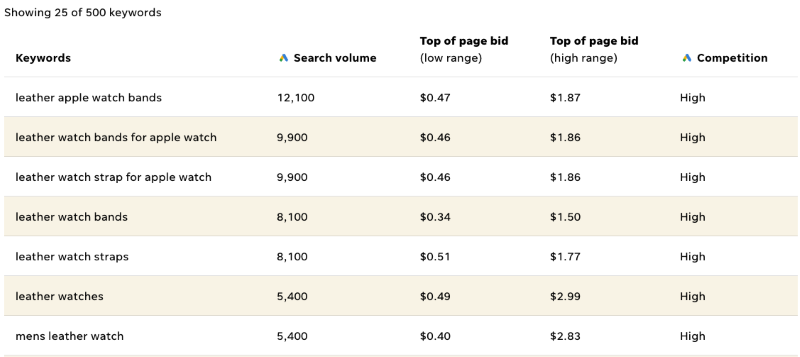Thriving on social media, building a large follower base, creating trending reels, making your brand effective and successful in terms of brand visibility, brand awareness, follower engagement, and even increased conversion rates, does not increase your brand's SEO Ranking in Google Algorithms.
A strong social media presence always helps. Your social media platforms can establish your brand presence and product awareness, which enhances the brand recall ability of your audience while searching for a similar product on Google.
Social media posts and engagement result in a strong brand-customer relationship and build the brand authority for expertise which translates to increased organic search results, organic clicks, backlinks, and drive-on-site engagement, aiding SEO.
It can Yes. An effective social media presence supports SEO and can get ranked higher, but indirectly.
Your loyal followers, who engage with your brand consistently, are the bridge and the actual factor between your social media presence and the Google SEO ranking system. Your interactive post content in social media, communicative design, and engaging captions establish a strong brand image in your followers' minds and influence the browsing behavior of these followers, who then further browse and interact with your brand/product in Google using search engine and webpages, and so, your brand gets ranked higher in Google.
This is the fundamental concept upon which many techniques like off-page SEO, Technical SEO, Image SEO, Video SEO, etc., are used.
Social media can significantly enhance your SEO by increasing brand visibility and driving traffic to your website. By sharing high-quality, engaging content across platforms like Facebook, Instagram, and LinkedIn, you can attract more visitors and encourage them to explore your site further. This increased traffic signals to search engines that your content is valuable, potentially improving your search rankings. Additionally, social media profiles that are well-optimized with relevant keywords and links to your website can serve as additional touchpoints, making it easier for users to find and engage with your brand. Engaging with your audience through comments and shares can also boost your content's reach and credibility, indirectly supporting your SEO efforts.
Use a similar strategy for social media optimization that you have used for the website by paying close attention to the keywords in titles as well as in the profile content. Topics for the blog, blog content, and call to action in the website must be relatable to the post content, captions, descriptions, and call to action in social media. Then, externally link your website and social media posts.
Follow a similar hashtag strategy, relevant and trending. Add social badges to your website and in your email signature. And add website links to your social media handles. Optimize your content for search engine optimization on social media platforms. Don't forget, social media has search engines too!

Building your business without consistent social media posting and management is a grave negligence. Gaining loyal followers while being inconsistent with social media posting or engagement is snowball's chance in hell!
Consistent posting of relevant and engaging topics gains your followers' trust, strengthens your brand authority, and positions your brand as an expert in your industry among competitors.
The followers get acquainted with your brand and brand values as they are consistently exposed to your brand and your products. And as they appreciate your creative communication, they become your loyal followers. And remember, it's always so easy to direct a loyal follower to your website than to direct a casually scrolling user.
Building loyal customers takes time and effort.
It requires authenticity in your target-audience-centric content creation, interaction with your audience, their user experience with your social media and website, valuing their differences of opinion, and addressing their grievances and feedback. Brand Loyalty involves gaining and being true to their consumer's trust (meaning delivering the brand promise and customer rewards for their consistent support to your brand). Here, building trust in your brand, trust in your products, and trust in your services are the pillars.
Customers forgive and let go of mishaps, but once the trust in a brand is broken, it's difficult to retain the same emotional connection they once used to have while engaging with you.
So, find your brand story, brand voice, and causes that your brand stands for. And be authentic and consistent in delivering your promises. Consistency in interaction and engagement is the backbone of building a community of loyal customers.
Whether it's a statement of appreciation or clarification or negative reviews/comments, a prompt and considerate reply positions you as a serious customer-centric brand online. It's because your followers feel seen, heard, and valued for their opinions.
Collaborate with influencers who share similar brand values, brand audience and stand for similar causes as your brand and engage with them often. This way, you will expand your audience, merge and interact with their community as well.
Brand engagement with its audience is all about building relationship through emoticons, likes, shares, comments, and DMs. Mastering hashtags are the trending way to vibe together with your audience. Identify loyal followers and reward them through contests, quiz, and interviews to keep this communication bloodline going.
Once your social media is well optimized, organized, and has active engagement with its audience, you need to focus on your website. Your website needs to communicate well with its visitors and keep them engaged as well. So, minimize their disappointment by optimizing your website well, updating your sitemap, content structure, backlinks, and hyperlinks. Update the design of your website and keep it well-coordinated with your branding. Make sure all your social media handles and your website share a similar brand theme.
Make similar blog posts as an extended form of social media posts. Now, use social media posts as links and utilize call-to-action to drive your audience to your website. This feature is crucially helpful if you are running an e-commerce site. Then, engage with them through your website as well.

The goal is to use social media to drive your audience to your website and hence, increase the website's SEO ranking in Google search. But your audience must not feel landing on an irrelevant website after visiting your site's landing page.
So, keep the branding, brand theme, and brand communication the same across all online platforms. This strengthens your brand's visibility, relatability, and continues its interaction with its audience. If you have a brand ambassador or brand representative, or influencer, keep him/her same across all online platforms. If you are highlighting a testimonial on the webpage, enhance the same testimonial content in video format on social media.
Update and synchronize your latest content, remove irregularities, and keep your message consistent across all the platforms is the message here!
Your keywords are of supreme importance for SEO Ranking. They improve Website Ranking and drive more organic traffic to your brand. This further increases social media traffic through search engines (if you have done the job of connecting your website with your social media well through links and high quality content). Focus on effective keyword usage, especially in blogging, and use it as an external link in social media.
When it goes viral on social media, it will draw traffic to your website and help boost your blog's ranking in Google. Have keywords that are relatable, searchable, and blend well with the rest of the content.
A robust link-building strategy is crucial for enhancing your website's authority and improving search engine rankings. By acquiring high-quality backlinks from reputable sources, you can signal to search engines that your content is trustworthy and valuable. This involves a combination of creating exceptional content that naturally attracts links, guest blogging on authoritative sites, and engaging in strategic partnerships with industry influencers. Additionally, leveraging broken link building, where you identify and replace broken links with your own, can provide a unique opportunity to earn backlinks. Social media can also play a role by promoting your content and increasing its chances of being linked to by others. Regularly auditing your backlink profile to remove or disavow low-quality links ensures that your link-building efforts remain effective and your site's reputation remains intact.

Online businesses and businesses with a widespread global audience neglect maintaining local listings, but it is so crucial because this verifies the actual existence and credibility of your business. Structure your local listing well and maintain it across all platforms and directories using targeted local keywords.
Optimize Google Business Profile, social media listing, and review sites with updated contact information, enhance local link building in your website and social media, and optimize voice search. This also helps in local SEO and builds a reliable business reputation and adds to the local SEO strategy. Many potential customers switch to your competitors when they dial your business number and hear a does not exist recorded voice.
Get into local influencer marketing, local social media marketing, have location-related blogs and articles, and build local partnerships with other businesses so that potential customers in the near me locations can connect and relate with you well.
Don't be a stranger to your local community. The comments and reviews of your local community and their ratings online strengthens credibility and trust for the far-away audience. It ensures a higher conversion rate when your followers/visitors see video testimonials, BTS posts of your business involving locals in it.

This is the UI/UX part of your website. The user experience of visitors makes them engage more, visit multiple pages, and spend more time on your website. On the contrary, a high load time, poor UX, unorganized site architecture, poor navigation, unstructured content positioning, etc, cause a visitor to leave the website quickly. This affects SEO ranking and pushes your website back instead of the first page of Google.
A polished UI/UX when merged with high-quality content, effective optimization of the website, regular web audits, consistent email communication with your audience, and building responsive websites enhances dwell time, average engagement time, and reduces bounce rate.
Integrating social media with SEO strategies can significantly enhance your online presence and search engine rankings. By creating engaging content, optimizing social media profiles with relevant keywords, and actively participating in social media conversations, you can drive more traffic to your website and improve your brand's visibility. Social media platforms serve as valuable channels for distributing content, which can lead to increased backlinks and social signals, indirectly boosting your SEO performance. Moreover, leveraging AI tools for content repurposing and keyword research can further refine your social media SEO strategy, ensuring that your content reaches the right audience at the right time.
These methods enable your social media presence to cooperate well with your website so that you can leverage the benefits of both digital platforms and achieve better results in your SEO ranking.
A esteemed contributor in the realms of technology and business. With a distinguished career marked by leadership roles within Fortune 500 companies...
We'd love to hear from you! Leave your experiences or questions in the comments section below.
This policy contains information about your privacy. By posting, you are declaring that you understand this policy:
This policy is subject to change at any time and without notice.
These terms and conditions contain rules about posting comments. By submitting a comment, you are declaring that you agree with these rules:
Failure to comply with these rules may result in being banned from submitting further comments.
These terms and conditions are subject to change at any time and without notice.
Tweet Share Pin Email
Comments